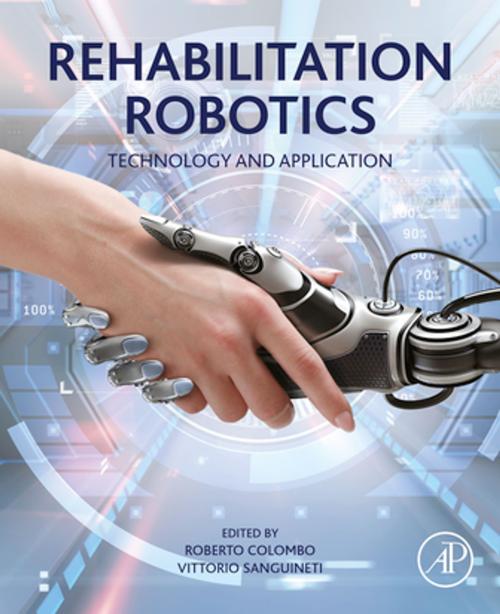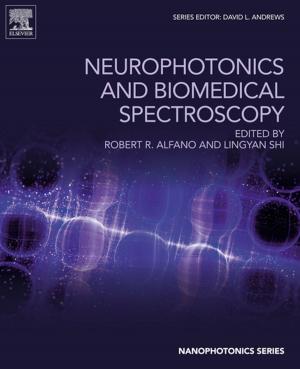Rehabilitation Robotics
Technology and Application
Nonfiction, Science & Nature, Science, Biological Sciences, Biotechnology, Technology, Engineering| Author: | ISBN: | 9780128119969 | |
| Publisher: | Elsevier Science | Publication: | March 8, 2018 |
| Imprint: | Academic Press | Language: | English |
| Author: | |
| ISBN: | 9780128119969 |
| Publisher: | Elsevier Science |
| Publication: | March 8, 2018 |
| Imprint: | Academic Press |
| Language: | English |
Rehabilitation Robotics gives an introduction and overview of all areas of rehabilitation robotics, perfect for anyone new to the field. It also summarizes available robot technologies and their application to different pathologies for skilled researchers and clinicians. The editors have been involved in the development and application of robotic devices for neurorehabilitation for more than 15 years. This experience using several commercial devices for robotic rehabilitation has enabled them to develop the know-how and expertise necessary to guide those seeking comprehensive understanding of this topic.
Each chapter is written by an expert in the respective field, pulling in perspectives from both engineers and clinicians to present a multi-disciplinary view. The book targets the implementation of efficient robot strategies to facilitate the re-acquisition of motor skills. This technology incorporates the outcomes of behavioral studies on motor learning and its neural correlates into the design, implementation and validation of robot agents that behave as ‘optimal’ trainers, efficiently exploiting the structure and plasticity of the human sensorimotor systems. In this context, human-robot interaction plays a paramount role, at both the physical and cognitive level, toward achieving a symbiotic interaction where the human body and the robot can benefit from each other’s dynamics.
- Provides a comprehensive review of recent developments in the area of rehabilitation robotics
- Includes information on both therapeutic and assistive robots
- Focuses on the state-of-the-art and representative advancements in the design, control, analysis, implementation and validation of rehabilitation robotic systems
Rehabilitation Robotics gives an introduction and overview of all areas of rehabilitation robotics, perfect for anyone new to the field. It also summarizes available robot technologies and their application to different pathologies for skilled researchers and clinicians. The editors have been involved in the development and application of robotic devices for neurorehabilitation for more than 15 years. This experience using several commercial devices for robotic rehabilitation has enabled them to develop the know-how and expertise necessary to guide those seeking comprehensive understanding of this topic.
Each chapter is written by an expert in the respective field, pulling in perspectives from both engineers and clinicians to present a multi-disciplinary view. The book targets the implementation of efficient robot strategies to facilitate the re-acquisition of motor skills. This technology incorporates the outcomes of behavioral studies on motor learning and its neural correlates into the design, implementation and validation of robot agents that behave as ‘optimal’ trainers, efficiently exploiting the structure and plasticity of the human sensorimotor systems. In this context, human-robot interaction plays a paramount role, at both the physical and cognitive level, toward achieving a symbiotic interaction where the human body and the robot can benefit from each other’s dynamics.
- Provides a comprehensive review of recent developments in the area of rehabilitation robotics
- Includes information on both therapeutic and assistive robots
- Focuses on the state-of-the-art and representative advancements in the design, control, analysis, implementation and validation of rehabilitation robotic systems















